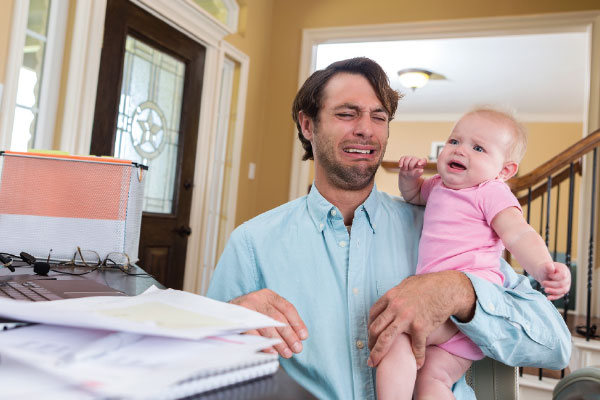Lamar Kanafani, the island’s first, and so far only, licensed marriage and family therapist, writes for WTM on the issues that concern mums.
The arrival of a new baby is a life-altering experience. No friend or family member can accurately explain to you how life really changes. The pressures of parenthood, the emotional and physical demands in caretaking, the increased financial responsibility and the effects on social life, marital relationship and lifestyle are but a few of the major changes we experience as parents.
The thing about postpartum depression, or PPD, is that mothers are not the only ones who suffer from it. Paternal postnatal depression, or PPND, exists; and it can turn into a serious condition if left untreated. About 25 to 30 per cent of new fathers will experience PPND; however, it’s more difficult to diagnose in men than women due to several factors. First, the onset of PPND tends to be later than that of PPD in mothers, who tend to experience it within the first three months post-delivery. In men, onset often occurs six to nine months after the birth. Another reason PPND is more difficult to detect is that many symptoms present differently than they do in mothers.
Mothers tend to show more recognisable signs of PPD. These include: depressed mood or severe mood swings; excessive crying; difficulty bonding with baby; withdrawing from family and friends; changes in appetite; changes in sleep patterns or quality; fatigue or lethargy; reduced interest or pleasure in usual activities; intense irritability and anger; feelings of worthlessness, shame, guilt or inadequacy; difficulty concentrating or making decisions; panic attacks and other anxiety symptoms; thoughts of harming self or baby; and suicidal thoughts.
While fathers can still experience the above symptoms, they tend to present with less obvious signs. Behaviours indicative of a father suffering from PPND include overworking, increased irritability, increased stress, withdrawing, infidelity, spending excess time with friends, excessive drinking, aggressive behaviour, impulsivity and risk-taking. These symptoms can happen either gradually or all of a sudden and they range from mild to severe. Every father who experiences PPND experiences it differently.
There are several predispositions that increase the chances for a new father to experience PPND. Personal history of depression or anxiety, changes in male hormones, troubled spousal relationship, poor or frictional relationship with extended family members, non-standard family situation (divorce, single-parent or step-parent homes), poor social functioning or support, limited resources or financial problems and a sense of exclusion from mother and baby are all factors that make it more likely the new father will experience PPND symptoms to some degree.
Many dads feel alone, and often don’t know they’re NOT. Cultural and social norms, as well as the fear of being judged, labelled or stigmatised can contribute to men keeping quiet about how they’re feeling. This, and the lack of awareness on the topic, decrease the likelihood that they will reach out for help. PPND is a serious but treatable condition. And if left untreated, the long-term consequences for the father and the family can be damaging. So, it is very important that fathers reach out for professional help.
The Edinburgh Postnatal Depression Scale (EPDS) is an assessment tool used to help determine whether or not you’re suffering from PPND. There are short and more comprehensive versions which can be accessed online if you wish to test yourself. Also, if you’re a concerned wife who suspects your husband might be suffering or experiencing, to some degree, the above symptoms, do have a private talk with them to express your concerns, to encourage them to open up or to suggest they seek professional help. If that initially feels uncomfortable, try to find ways to make changes together that will help you both get through this difficult time of adjustment with the arrival of a new family member. You can also seek professional help together, which fosters that ideal team effort.
For further questions or support, email [email protected] or call 36 009-665.




































